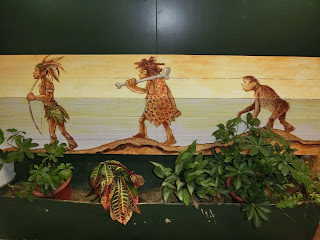when miracles happen - 17th Sunday B
When
does a miracle of provisions happen? The
first reading for this Sunday is composed only of two verses but it gives us I
believe the conditions that make miracles of provisions happen. What are these conditions? There are four.
First. A man came from Baal-shalishah bringing to Elisha, twenty barley loaves made
from the first fruits and grain. There
was no obligation on his part to provide Elisha with food. There was not even a mention that Elisha
needed food. The man who was not even
named went to Elisha to give him food. A
generous person doesn't have to be named, he offers to give not because there
is a need, he gives not because he is obligated to give, nor does he give
because he is bothered by his conscience.
No. He just gave. Nobody even asked from him, but he gave. He was generous, it was automatic. There was a miracle here because there was a
man who was generous. Miracles always begin with an act of generosity.
Second. The unnamed generous man gave the bread and
grain to Elisha, and Elisha shared it to the people saying “Give it to the
people to eat.” When Elisha was given
gifts of bread and grain, he did not immediately grab them from the man and
hide them in his room. He did not keep
it in his refrigerator or hide it in his locker. No. He
immediately said “give it to the people, they are hungry.” There was a miracle here because Elisha did
not think only of himself. Rather his
immediate reaction was to share what he has with others, he shared even the
gifts given to him.
Third. When Elisha told the servant give it to the
people to eat, the servant protested – how can 20 loaves feed 100 men? That was the reaction of the servant. The servant did not say, let us hush this up,
let us give this only to our friends. No,
he did not say that nor did it cross his mind.
What the servant became passionate about was, how can we feed everyone
with so little? How can we share this
with everyone? The servant was thinking
of equity –he was concerned about fairness, about justice, he had the whole
community in mind. So a miracle happened
here because the servant was thinking about everyone, he was concerned about
everyone, and not just his friends or his allies or those near to him, he was
concerned for the good of all.
Fourth,
with the protest of the servant noted Elisha insisted by repeating his
instruction – “give it to the people to eat.”
But Elisha added to this instruction saying, “for thus says the Lord,
they shall eat and have some left.” Now,
it is no longer just a few bread that the man gave in his generosity to Elisha. Now it is not just the loaves of bread which
Elisha wanted to share with others. Now
it is not just the concern of the servant that all must be fed equally. Now it is God’s concern and God’s command
that all must be fed. When God was
allowed to intervene and when God’s command was heeded, the little that they
have, fed everyone to satisfaction and even produced a surplus.
Generosity,
sharing, desiring and working for equity and allowing God his rightful place in
our lives, allowing God to intervene – this is how you make a miracle.
I have
to admit that the most burdensome duty of the rector is to send out people –
that includes seminarians, teachers, formators and workers. I have done all that and the thought has
never given me any happiness. But there
are happy memories too, miraculous stories when I have asked the best and the
brightest in class to help the weakest and the slowest in class. I believe the Grade 10 can still remember
when there were negotiations at the rector’s office for the brightest to help
the weakest in class – “may iban pa gani nga nagasiling – indi lang ako sa iya
der, akbudlay na sa iya der, sa iban lang ako der i-assign.” Also with the grade 9. Sometimes I have to
bribe, many times I have to threaten.
Grade 8 - this is still to be seen.
College – there were many – but some flopped, some indeed made a
difference after sometime. But miracles
did happen, changes happened, unexpected it may seem at the outset, but it
happened precisely because of the values I mentioned awhile ago.
This
week with the college I would like to reflect with you on the Pope’s Encyclical
Laudato Si taking also these four qualities that make a miracle the springboard
for our reflection. Laudato si can only
make sense and can become doable and practical when these four qualities are
recovered in our person and in our community.
It is after all an encyclical entitled on Care for our Common Home. This
encyclical is not just about the environment although it zeros in on the
environment – but it is above all is a way of thinking, a way of living based
on the premise that we are living in a common home.

Comments